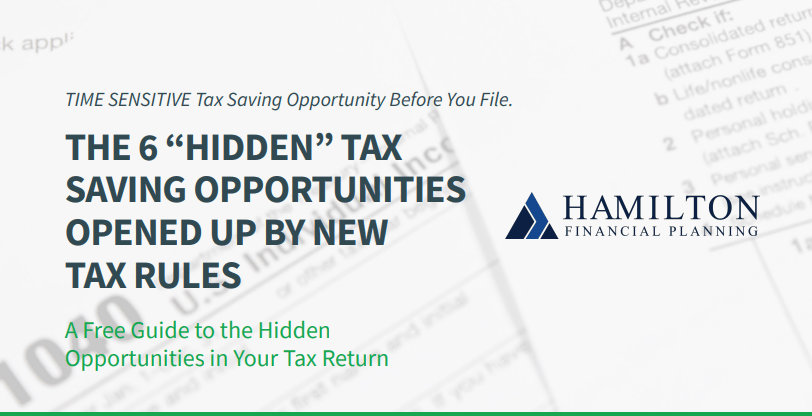Renting vs Buying For Retirees
One of the comments I hear the most is “We want to downsize now that we’re retiring and/or have retired.” Once the decision to downsize or move to an upscale retirement enclave is made, the next quandary is deciding whether to rent or buy.
To keep the record straight, I would never suggest where a client should move, but I most assuredly do present them with a solid analysis of the financial benefits of buying vs. renting as it relates to their particular circumstances.
That last part, “as it relates to their particular circumstances”, is crucial to any major decision. All the statistics in the world must have enough flexibility to work within your exact parameters, desires, and needs.
That’s why at Hamilton Financial Planning we pride ourselves on learning and valuing each client’s very specific desires and goals – both current and long-term.
Table of Contents
Renting vs Buying For Retirees
Some Renting vs. Buying Statistics + Your Preferences
Generally speaking, renting is cheaper than buying if you live on either coast of the U.S. Buying is cheaper than renting in flyover country, even though some markets in our country’s midsection are becoming expensive.
Trulia, the real estate website, reports that buying a retirement home is almost always cheaper than renting one. Traditional retirement communities offer some good deals.
For retirees, buying is cheaper than renting in all major metros by 41.8%.
But the math changes substantially if retirees don’t care to leave an inheritance.
In other words, buying in retirement is only better than renting if retirees care about leaving an inheritance to a loved one. If a retiring or retired individual doesn’t care about the equity in their home for inheritance purposes, renting a home is the better option in 98 of the 100 cities with the most retirees. This is because the value of the equity in a home is a significant contributor to the financial benefits of homeownership. If we leave out this value because retirees don’t care about it, the benefits of homeownership compared to renting fall.

When It’s Time to Downsize Discuss Options with Your Financial Planner
When selling your home, one of the most crucial decisions is how to dispose of, or invest, the proceeds from the sale.
Using part of, or your entire cash windfall, to buy another residence means that chunk of money is now tied up. Alternatively, renting could work out better. For example, put those proceeds to work immediately into an investment portfolio mix. We recommend DFA (Dimensional Fund Advisors) Mutual Funds as DFA offers deeply researched, analyzed, and low-cost mutual funds thanks to a repeatable, global process rather than individual star managers. Your resulting dividends and interest could augment the monthly retirement income and subsidize most or all monthly rent costs.
Deciding what is most important to you should be your guide star – or at least, it is your starting point.
Sit Down and Do the Math
AARP recommends setting up a retirement budget both with and without the purchase of a home. Calculate the costs and where the money comes from for housing expenses. Yes, rent tends to increase at a current rate of about 3 percent as does home insurance, taxes, and maintenance/upkeep. If you need a reminder, think back to that last astonishing plumber’s bill.
If your budget shows you can pay cash for a new home or condo and still have plenty of money left over for living expenses, and if you want to leave your home as part of an inheritance, AARP says “you are a good candidate for buying.”
Conversely, if owning your own place strains your budget or hampers the lifestyle you want to enjoy during retirement, you are a good candidate for renting.
Renting Has Other Rewards … as Well as Drawbacks
If you have just sold your home and plan to move to a new area, renting is the ideal way to check out your new environment before committing to a mortgage or full cash payment. Renting is also a prime way of divesting yourself of the cost of maintenance and unexpected expenses. Just call the landlord if you need a plumber or a new furnace.
There are negatives to renting. Sure, you can paint the walls … but you can’t modify the building structure to suit your living style. Landlords can decide to sell, leaving tenants no choice but to move out. Your beloved pet might not be welcome or might cost you a hefty security deposit.
Weigh the Factors and Decide
This is where your financial advisor is invaluable. The bottom line when deciding whether to rent or buy during retirement comes down to tangible items:
- Income
- Assets
- Clear profit from the sale of your current home
And one intangible item:
- Will buying or renting be most beneficial in helping you reach your goal of financial independence and retired lifestyle flexibility?
At Hamilton Financial Planning we address the seemingly far off retirement day with clients from the very beginning. Planning in advance allows for plans, circumstances, and dreams to change while continuing on a course to grow your wealth.
Have Questions About Your Best Retirement Housing Options?
Schedule Your Complimentary Get Acquainted Meeting Today!
Get The Insurance Coverage You Need
If you are still unsure as to whether or not you need an umbrella policy, our team at Hamilton Financial Planning can help! Schedule a complimentary get-acquainted meeting online or reach out to us at 512-261-0808 or scott@hamiltonfinancialplanning.com.
About Scott
Scott Hamilton is the founder and chief financial officer at Hamilton Financial Planning, a wealth management firm that specializes in providing comprehensive financial planning for retirees in Dallas, Houston, and Austin, Texas. With over 20 years of experience in the financial industry, and has completed over 250 financial plans for retirees across all industries, but mostly the oil and gas industry, Scott is passionate about providing his clients with the tools and insight they need to achieve their financial goals.
He has a Bachelor of Business Administration in finance from Texas State University and an MBA in international finance from Pepperdine University. Scott has also been happily married to his wife, Gayle, for over 25 years. To learn more about Scott, connect with him on LinkedIn.

